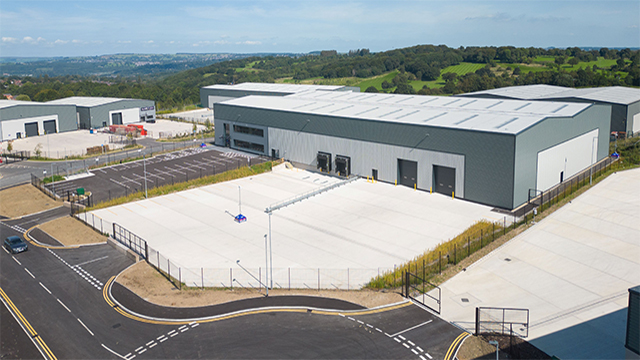Demand from the TMT sector saw office take-up in the South East rise by 37% in the final quarter of 2022, according to research by Knight Frank.
More than 809,000 sq ft was let in the final three months of the year, bringing the total take-up for 2022 to 2.75m sq ft, 6% higher than 2021.
Some 244 deals were registered last year – the highest since 2018, of which TMT companies accounted for 26% of leasing deals and 23% of space taken.
Grade-A offices with strong sustainability credentials and amenity offerings accounted for 87% of all space taken, with 36 of 55 South East office markets recording an increase in prime rents during 2022, according to Knight Frank.
However, the flight to quality means vacancy levels in grade-B office stock are at their highest level since 2014.
Total office vacancy for the South East by the end of the year was above the long-term average at 7.6% but availability for new or recently refurbished offices remained unchanged.
The investment market saw £748m in transactions in Q4 2022, taking turnover for the year to £2.8bn – down by 31% compared with the previous year.
Investment volumes in 2022 were 5% behind the 10-year annual average, with 93 deals completed, of which UK buyers accounted for two-thirds of the transactions.
Overseas buyers were responsible for four of the six £100m-plus deals.
Asset sales in Cambridge and Oxford accounted for 37% of investment volumes in the South East, as investors continue to target life sciences and innovation-led workspaces.
However, the region could not escape widespread economic turbulence within domestic and global capital markets, which led to rapid market repricing towards the end of 2022. Figures showed prime office yields moved out by 75bps to 6% in response to the sharp rise in swap rates and the erosion of the gap between UK Gilts and office yields.
Roddy Abram, head of national offices at Knight Frank, said take-up in the region remained resilient in 2022 “despite macroeconomic shockwaves and hybrid working patterns”.
He added: “While the average size of transactions has reduced, the number of occupiers looking for the best-in-class space has increased, evidenced by deal count and how most new leases were for new or comprehensibly refurbished modern offices.
“With the need to justify the rising costs of refurbishment and development, we continue to see rental growth across the prime South East locations, and 2023 looks likely to be more of the same with the best-quality buildings that are ESG-compliant and amenity-rich continuing to experience competitive tension.”
Simon Rickards, head of South East capital markets at Knight Frank, said: “Many factors affected investor sentiment throughout 2022. Geopolitical instability, inflationary pressure and supply chain constraints, the mini-Budget and the increasing cost of debt all provided various headwinds. Despite this, investment volumes for 2022 totalled £2.8bn, just short of the 10-year annual average. After a period of pricing discovery in Q4, brought about by these headwinds, transactions have begun to take place at a rebased level with relative increased stability.”
Rickards added that the overarching themes of the past two years, including “a focus on prime buildings and locations, the softening pricing of secondary assets, significant interest in life sciences opportunities and repositioning of tertiary assets that risk obsolescence without capital expenditure” are all trends set to continue in 2023.
To send feedback, e-mail chante.bohitige@eg.co.uk or tweet @bohitige or @EGPropertyNews










